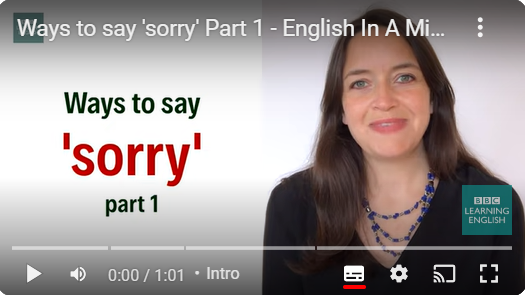7 Awesome tips from an English language teacher on how to successfully learn English
As a native English language teacher, I am continually asked for tips to successfully learn English. I could provide a list containing hundreds of suggestions but I have concentrated on what I consider to be the most important. Implementing these simple tips will give you the best chance to learn English.
1. Study with a qualified, experienced, engaging English language teacher
I have been a language learner (Spanish, Greek) and also an English language teacher. In my opinion it is vital to employ a teacher that is qualified, experienced and engaging to maximise your learning potential.
Qualified
The quality of the educator is very important. Anyone can call themselves an English teacher as there is no official, internationally recognised qualification to be an English teacher. Most language schools require the teacher to have undertaken Teaching English as a Second Language (TESOL) a Teaching English as a Foreign Language (TEFL) course. However, the quality of the qualification and the training varies markedly between training courses. Some only require a minimal number of hours doing a low quality course online without any practical experience.
Other courses provide very good training, the most notable is CELTA (Certificate in English Language Teaching to Adults) and the more advanced DELTA (Diploma in Teaching English to Speakers of Other Languages) from Cambridge. Their courses include both theory and practical https://www.cambridgeenglish.org/teaching-english/teaching-qualifications/celta/.
Many universities offer TESOL programs either as a minor for an undergraduate degree or as a post graduate degree. Some of the courses include a practical component. I personally chose the post graduate university pathway and have a Masters in Applied Linguistics focusing on teaching TESOL and the structure of language. Other teachers have a Bachelor degree and CELTA. Either of these options is fine but I wouldn’t pay someone who has only completed an online TEFL course.
Experienced
More important than the teaching qualification, is the amount of experience the teacher has. A skillful teacher that has proven experience teaching English at a formal language school should always be preferred over someone who doesn’t. I am a much better language teacher now than when I first began, because I have learnt by experience what are the best methods to teach grammar, vocabulary, writing, reading and pronunciation. Having this experience is vital to being a good teacher.
Engaging
Having an engaging teacher can make learning fun and interesting, which helps you remember things better. Engaging teachers use exciting ways to teach, and their enthusiasm can inspire you to keep trying even when it gets tough. I know from my experience as a language learner and as a language teacher the importance of making things interesting. Along with being engaging a good teacher can explain complex grammar in a simple to understand way.
2. Use a recognised curriculum
Using curriculum that is developed and written by TESOL professionals will make your learning easier and more enjoyable. Well organised books will take you on a learning journey from beginner level to advanced level with each level book building on the grammar, vocabulary and writing techniques from the previous book. Some of the most popular curricula used in recognised language schools around the world include English File; Speak out; Cutting Edge; Keynote amongst others. I have personally taught from each of these curricula and each has their pros and cons but I recommend English File and Speak Out.
For a list of some popular online ESL curricula check out this site https://onlineteacherdude.com/online-esl-curriculum/
3. Don’t be lazy – Do extra study
I am constantly reminding my students of the importance of doing extra study or practice outside of the classroom. Even though we don’t like doing homework and we are all busy it is an tip to successfully learn English. This may be via homework given by the teacher, extra writing practice that can be corrected by a teacher or a native English speaker that can provide feedback on how to correct the error and improve writing style.
Use online resources
Some students take advantage of online courses, usually on YouTube or language learning Apps. There are many great websites to help people learn English. Two of my many favourite sites are perfect-english-grammar.com and learnenglish.bristishcouncil.org
A very popular App that I recommend to my students is Duolingo. Check out this list of popular websites and Apps compiled by Jesse Beck: https://www.fluentu.com/blog/english/best-websites-to-learn-english/

Youtube
There is some amazing content on Youtube that you can access for free! One of my favourites is mmmEnglish. Emma has created over 300 videos and has over 5 million subscribers! She covers all the topics that someone who wants to learn English need to know.
Another great site is BBC learn English with over 3,500 videos and 6 million subscribers! They are both very useful tools to practice your English for free.
Other free activities
Some other free activities I encourage my students to do is read articles in English on your favourite topic, read children’s books in English, watch movies with subtitles in your language first then with English subtitles, talk with native English speakers, join a social club that speaks in English, join an online speaking group. Think of something you are interested in and do it in English.
4. Speak English all the time: this is one of the most important tips to successfully learning English

The principle reason to learn a language is to be able to communicate with other people using the language. Be BRAVE and speak! Speaking a language is the most important thing you can do to learn the language. I continually encourage my students to speak in English irrespective of the size of their vocabulary. Using the words reinforces them and builds confidence when using other vocabulary. You will make mistakes but the more you speak the less mistakes you will make. Speak with your friends, family, colleagues and other language learners in English even if they speak the same language as you. When we speak we also have to listen, which of course helps improve out listening skills.
Check out this YouTube presentation by Tania where she provides a list of free websites you can use to practice speaking English, some of which are with native English speakers ttps://www.youtube.com/watch?v=xI7br9a__b0
5. Pay attention to grammar and syntax
Students typically fall into one of two camps when it comes to studying grammar: they either love it or hate it, with little middle ground. However, focusing on grammar is crucial for mastering correct tenses (past, present, and future), ensuring subject-verb agreement (e.g., “he is a man” instead of “he are a man”), and understanding singular and plural agreement (e.g., “she has three cats” instead of “she has three cat”). Proficiency in these grammatical aspects significantly enhances the speed and accuracy of language learning.
Syntax, or word order, is another vital element for effective English learning. English follows the standard word order of Subject – Verb – Object, and it also places adjectives before nouns as a standard practice. Placing your words in the correct order greatly enhances your chances of being understood, particularly when speaking.
Among the most challenging areas for students to grasp in English are articles (a, an, the), which can be particularly complex, especially for those whose native languages lack articles; prepositions (on, at, in, etc.); and phrasal verbs (e.g., sit down, put on), which often involve prepositions.
To help you practice these skills, here are some recommended websites:
6. Increase your vocabulary daily
Regularly read various materials such as books, online newspapers, articles, and blogs etc. to expose yourself to different vocabulary. Start with children’s books as the vocabulary is simpler and the pictures help to identify words in their context (it’s a great excuse to read your favourite children’s books in English). Then move gradually to more difficult materials – reading about things you are interested in makes reading more enjoyable. Write down the new words in a notebook or digital document along with their meanings and then practice using them in sentences.
Utilizing flashcards is an effective technique. Create cards with words on one side and their definitions or the same word in your language on the other side. Practice saying them regularly to reinforce memory. Checkout Quizlet, an app offering flashcards, quizzes, and games for vocabulary learning. Duolingo, also includes vocabulary-building exercises suitable for various English levels.
Chatting with native English speakers exposes you to new words in practical situations. Lastly, make vocabulary learning enjoyable by playing word games like Scrabble, Boggle, or online quizzes. These interactive activities make vocabulary leaning more fun.
7. Be patient: everyone learns at different speeds

One of the most important tips to successfully learn English is that people learn English at different speeds. It’s OK to learn slower than other people, it’s NOT a race. There are several factors that determine how fast someone learns a new language including, language aptitude, age, previous languages etc. It takes the average person up to 600 hours of teacher guided learning to complete Upper Intermediate (B2 level).
A common mistake students make is to rush into exam preparation courses like IELTS and Cambridge before they have an adequate knowledge of English. In my opinion the ideal study plan is to successfully complete upper intermediate (or preferably higher) in a General English course before moving to the exam preparation courses. As can be seen by the comparison chart, students who are at B1 level (Intermediate) will get on average a 4.5-5.0 IELTS score. Check out the CEFR website https://www.coe.int/en/web/common-european-framework-reference-languages/ and Cambridge https://www.cambridgeenglish.org// and IELTS https://ielts.org/

If you would like to find out more about studying in Australia, then check out my website. Or check out some of my other great blogs.






